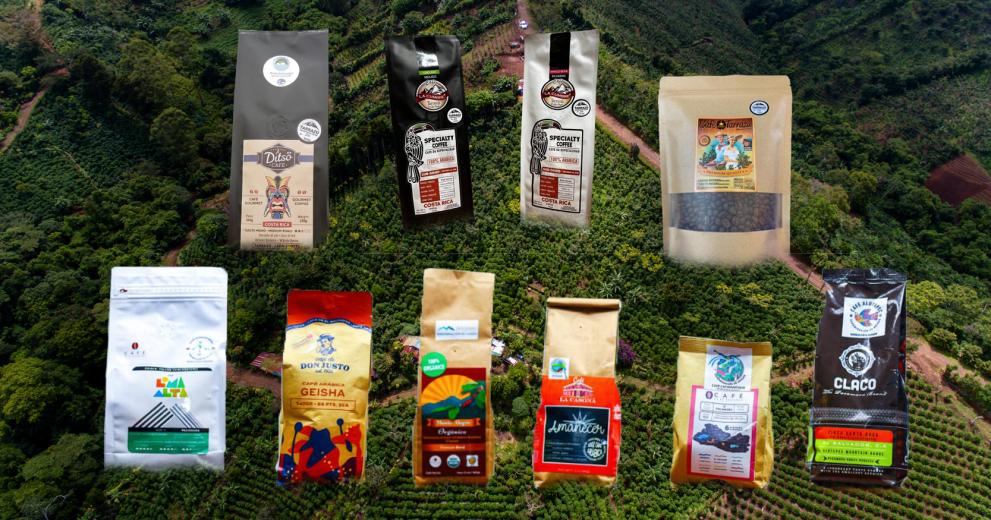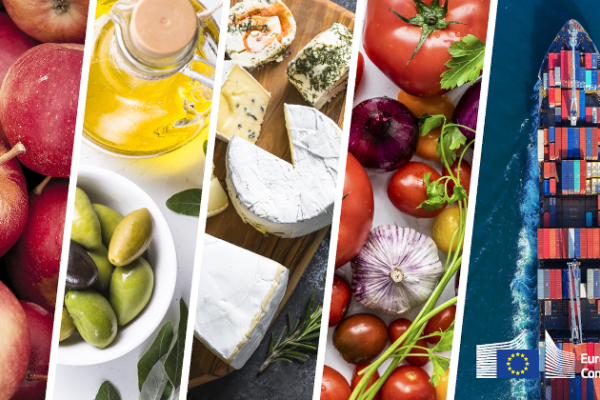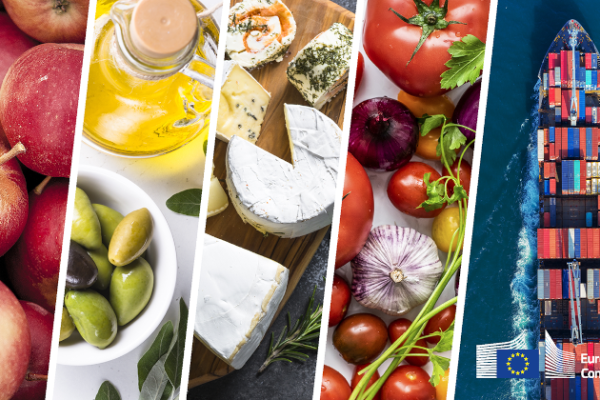
Today, the EU and its Central American partners celebrated the 10th anniversary of the signature of the EU-Central America Association Agreement. At the annual Association Committee, the EU, Costa Rica, El Salvador, Honduras, Guatemala, Nicaragua and Panama agreed to further deepen the agreement by protecting eleven new geographical indications from Central America directly under the agreement. This reflects the interest of the parties to protect local knowledge and high quality food products and to stimulate rural development. This is the first time that geographical indications are added to the EU-Central America Association Agreement since the initial decision to protect geographical indications under the agreement. It covered until then 9 geographical indications from Central America and 116 geographical indications from the EU.
The new protected products include five premium coffee beans from El Salvador: Café Alotepec, Café Bálsamo Quezaltepec, Café Bálsamo Quezaltepec, Café Cacahuatique, Café Chichontepec, Café Tecapa Chinameca, as well as the Tarrazú coffee from Costa Rica. These two countries are important suppliers of world-class coffee to the EU. The list of new protected products also cover other iconic food products from El Salvador: Camarón Bahía de Jiquilisco, a shrimp from the Bay of Jiquilisco; Chaparro, a spirit drink made with fermented white maize grains and sugar cane juice; Jocote Barón Rojo San Lorenzo, a small fruit; Loroco San Lorenzo, a vegetable; and Pupusa de Arroz de Olocuilta, a thick filled flatbread made with rice flour, a special variant of El Salvador’s iconic national food item “pupusa”. These eleven products will be protected in the EU against imitations and usurpation. Other Central American countries are currently in the process of assessing possible applications for protection of additional geographical indications under the agreement too.
The main EU imports from Central America are tropical fruits, nuts and spices, coffee, tea, palm and palm kernel oils, vegetable products and bulbs, roots, and live plants. Under the EU-Central America Association Agreement, imports of agricultural products from Central America to the EU went from 2.8 billion Euros in 2012 to 4 billion Euros in 2021- a growth of 44%. More than 50% of exports from Costa Rica to the EU are agri-food products, and for El Salvador, agri-food products represent almost 30% of their exports to the EU.
In this context, protection of geographical indications from these two countries in the EU can add value to these products on the EU’s single market, thereby, contributing to livelihood of farmers in Central America and to the economic development of the region. An EU study showed that the protection of geographical indications can generate an extra revenue for the producers and have positive repercussion for rural development, in particular in countries, where tourism plays an important part in the economy like Costa Rica and El Salvador.
When the Agreement was concluded 10 years ago, it was agreed that Central America would further develop its system of geographical indications. Both parties expressed in a joint declaration their intention to enlarge the number of GIs from Central America protected once new products can be registered. Today’s additions fulfil this aim and pave the way to add further products for protection under the Agreement in the future.
Background
EU quality schemes aim at protecting the names of specific products to promote their unique characteristics, linked to their geographical origin as well as traditional know-how. This is one of the great successes of European agriculture, with more than 3,300 EU names registered as either Protected Geographical Indication (PGI) or Protected Designation of Origin (PDO). More than 1.500 geographical indications originating outside the EU are currently protected within the EU, mostly thanks to bilateral agreements such as this one with Central America.
| Country | Name | Products |
|---|---|---|
| Costa Rica | Tarrazú | Coffee |
| El Salvador | Café Alotepec | Coffee |
| El Salvador | Café Bálsamo Quezaltepec | Coffee |
| El Salvador | Café Cacahuatique | Coffee |
| El Salvador | Café Chichontepec | Coffee |
| El Salvador | Café Tecapa Chinameca | Coffee |
| El Salvador | Camarón Bahía de Jiquilisco | Shrimp |
| El Salvador | Chaparro | Spirits |
| El Salvador | Jocote Barón Rojo San Lorenzo | Fresh fruit |
| El Salvador | Loroco San Lorenzo | Fresh vegetable |
| El Salvador | Pupusa de Arroz de Olocuilta | Round flat thick rice tortilla |
Documents
Details
- Publication date
- 23 June 2022
- Author
- Directorate-General for Agriculture and Rural Development
- Location
- Brussels


